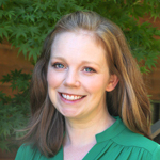I grew up in a continuous improvement household. Both of my parents – in their own ways and professions – were pretty obsessed with efficiency and management, so our familial commitment to systems-thinking and optimization ran deep. My ‘80s upbringing was less influenced by MTV and more by things like TQM (“Total Quality Management,” for those not in the know), and childhood dinners with my quality-control-guru dad often involved the flow-charting of science fair project processes and conversations about improvement vectors.
Such an upbringing leaves a mark, and, while an ingrained love for histograms and kaizen lines didn’t endear me to certain peers or potential dates, I learned a lot about how to think about organizational improvement and management. As I’ve pursued my own career trying to make education systems better, I’ve found myself time and time again going back to and recasting early lessons.
One idea that has really stuck with me is this: in order to improve the work, you’ve got to learn from the people doing the work. Not just survey and observe, but really get down in the weeds iteratively to co-problem solve and test approaches. This is a simple idea, but one that tends to get glossed over in large systemic efforts. And it’s an idea that is totally critical in our field, where teachers are our front line in innovation and experimentation. One of the best ways to support teachers and leaders is to create means to really learn from and with them.
It’s because of this belief that a big part of The Learning Accelerator’s human capital strategy is focused on finding ways to engage with and showcase the work of awesome teachers at the forefront of blended learning work. In the last month, TLA has launched two big partnerships, investing over a million dollars, to do just that.
FUSE RI with the Highlander Institute: As part of the Highlander Institute’s efforts to help Rhode Island’s 57 districts personalize learning for students, we are funding the launch of a new, two-year fellowship for teachers. FUSE teachers will work in partnership with other teachers and district leaders to share practices, identify needs, and build capacity. In addition to getting stipends and credentials for their time, FUSE teachers also get access to flexible funds to use on their own innovation and personal professional development projects. You can read more about the project on the FUSE RI page, or in a recent post by Tom VanderArk on Getting Smart.
Master Blended Learning Teacher Project: TLA is partnering with BetterLesson to identify, profile, and share the work of 10 stellar blended teachers on BetterLesson’s curriculum and practice sharing platform. As Alex Grodd, the organization’s founder and CEO puts it, “there is lots of hype around blended learning–lots of TED talks and promotional videos with swelling music and shots of students using iPads–but very few examples of what effective blended practice looks like in an authentic classroom environment.” We’ll be following our Master Teachers over the course of an entire academic year, aiming to help teachers learn from other teachers, to see what blended learning looks like in classrooms, warts and all. Christina Quattrocchi, of EdSurge, did a cool write-up of the project here.
We’re going to learn a lot from these initial projects, both about how to really push models of teaching and learning that are more personalized and mastery-based as well as how to engage teachers from the ground up to create the changes kids and adults need. I for one can’t wait to see where these leaders take us on their journeys, as well as to see the impact of their work field-wide.
Got an idea, feedback, or question you’d like to share? Let me know via twitter, @bethrabbitt.
